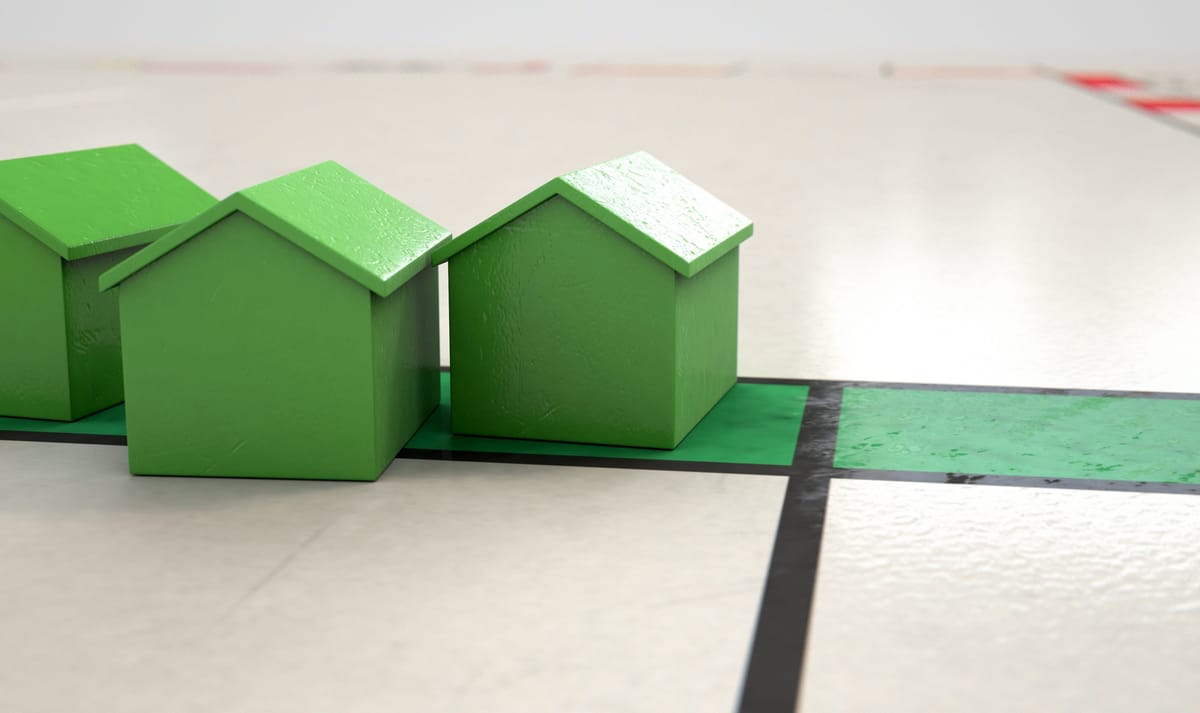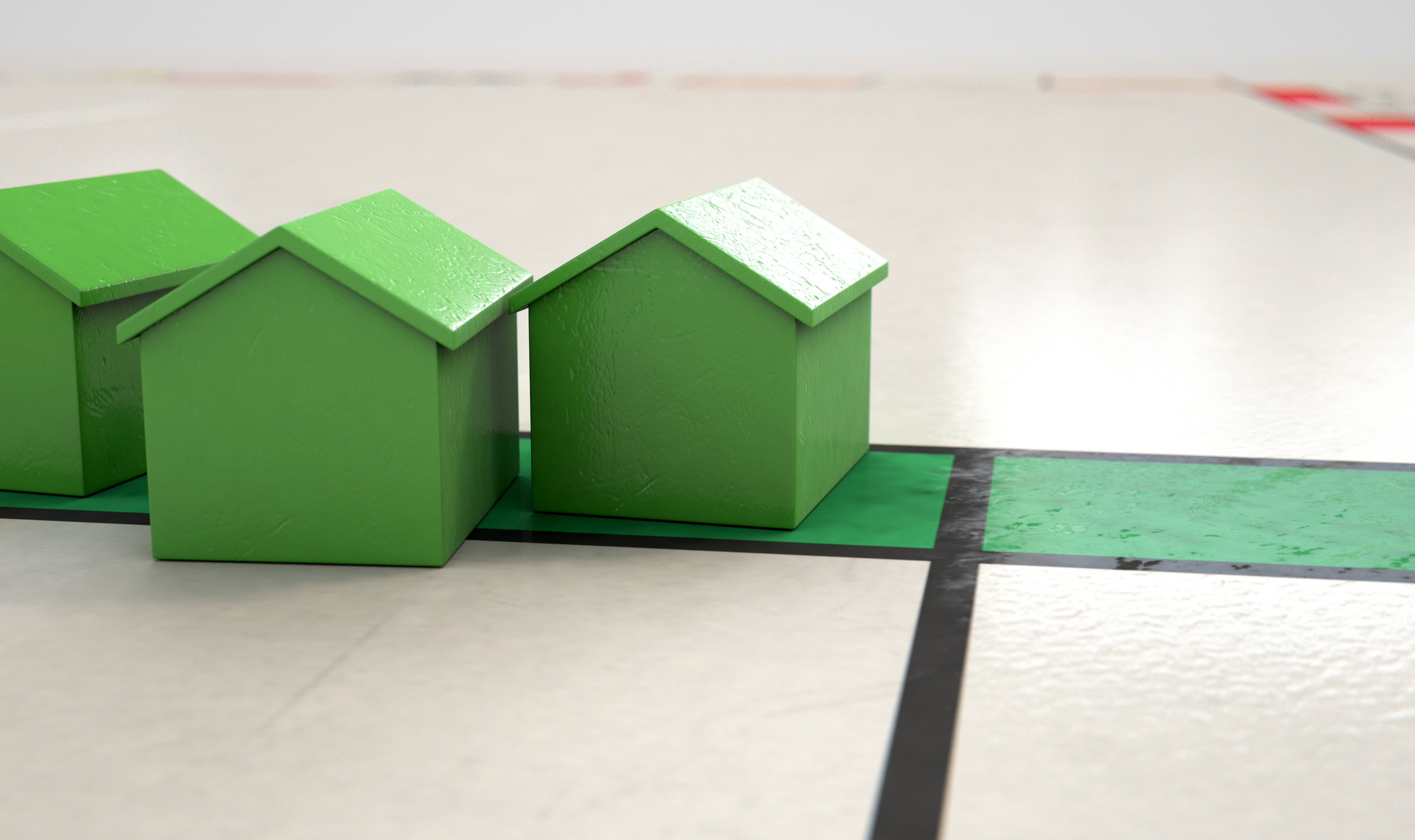10 Record-Keeping Strategies for Rental Property Owners

Property managers and landlords are naturally more at ease when their property management records are in order; whether the properties are residential or commercial. This means tenant screening, storing legal documents, and tracking every dollar spent and every dollar earned.
For any property management company, business accounting paired with a document management center can significantly help property managers keep track of their residential property portfolios, growth, profit margins, and more.
Rental property managers also have lots of information to administer every time there is practically any new activity; rental applications, tenant screenings, new leases to sign, rent payments to collect, a complaint to file, maintenance requests, or the inspection of property conditions, among many others.
Each action connected to your rental investment will generate a record of some kind, and each record will need to be organized and stored for future referencing.
If property managers are responsible for more than one unit or property, they may find themselves overwhelmed with the number of records they are trying to keep, presenting quite a challenge in addition to their already busy days.
So, what’s the solution? Hiring personnel? A property management accounting software? Ultimately, it’s about determining the best property management accounting strategy that works for the unique investment portfolio in question.

What Kinds of Records Should a Property Management Business Maintain?
A property management and growth plan and associated accounting strategy must provide accurate, reliable administration of:
Tenant Files
Tenant files should contain anything that refers to past tenants or current tenants, including, for example:
- tenant screening
- signed leases
- modifications and addendums
- security deposit records
- rental payments
- extra fees
- pet agreements and fees
- requests for entry
- inspection reports
- maintenance requests
- lease violations
- eviction paperwork
Property Maintenance Services
These files will contain a record of (including but not limited to) the following:
- rental expenses
- maintenance requests
- all work orders
- insurance policies
- inspection records
- maintenance records and updates
- property photographs
- vendor screening
- contracts
- invoices
- payments
- receipts
- service and vendor correspondence and emails
- online payments
- tax documents
Financial Records
This is a particularly important category of records for your rental property accounting, to include examples such as:
- record of rental income
- bank statements
- ledgers
- photocopies of checks
- security deposit records
- tax statements
- bank deposit slips
Remember, even the very best property management accounting can still allow for human error; property management accounting software, however, can facilitate the complexities of management accounting and produce error-free financial reports to support data-driven decision-making and accurate growth planning. Plus, there are also accounting coupons available that can help you save money on your accounting expenses.
If in Doubt – Keep It!
It’s always best to be on the safe side regarding retaining important documents – ultimately, the best rule to stick to is, if in doubt – keep it! A couple of other points include:
- when a property manager uses entertainment expenses to market a property, it’s crucial to keep detailed records for eventual tax deductions
- if property management involves the employment of staff, make sure to keep copies of payroll taxes, withholding records, and employment tax returns
Marketing and Promotion
The best property management company will use marketing and promotional tools to avoid/eliminate vacancies, especially for extended periods. All documentation of marketing efforts and services for reducing vacancies will need to be kept in this section.
How Long Do I Need to Conserve Rental Property Records?
Depending on the importance of specific records and the information they contain, they should be maintained for a specified period of time, as relevant to their nature. As Realtor Darren Robertson explains, principal documents should be kept for a minimum of seven years, whereas a rental application or tenant screening may be kept for a shorter period.
The United States Internal Revenue Service recommends keeping ledgers and journals, tax returns, year-end financial statements, and all supporting documentation for at least seven years; keeping physical copies can certainly be useful should technological accounting features or other record-keeping measures fail.
Records that need to be kept indefinitely might include:
- deeds and mortgages
- property appraisals
- tax returns
- annual financial statements
- canceled checks for taxes
- canceled checks for property purchases
- licenses and permits
- external audits
Records that should be kept for seven years include:
- bank statements
- employee records
- journals
- expense reports
- invoices
- payroll records
- accident reports and claims
- purchase orders
- ledgers of payable and receivable accounts
Records to maintain for three years:
- expired insurance policies and paperwork
- banking records
- correspondence and emails
- tenant screening
- internal audit reports
- tax-related documentation
Records to keep for a year include:
- employee applications
- purchase orders
- expenses from maintenance requests
- meeting minutes
Paper vs. Digital Systems
Current technology offers landlords a choice between paper-based record keeping or property management software-based record keeping, and both systems are accepted by tax authorities; manual record-keeping typically requires more time, but for some, it can feel like a simpler solution.
Still, for most individuals and companies, property management accounting software systems can save a lot of space, and time; they can also feature a tenant portal and a backup system, but a chunk of time and money will need to be invested into the program and into understanding how to operate it.
Rental property management software may be as simple as using an Excel document to create a spreadsheet, utilizing a rental property spreadsheet free template, or an app that may offer cutting-edge accounting features. Managers can also opt to use personal finance software that runs much like an electronic checkbook.
Other property management software alternatives include small business management accounting software, with features including bill payment options, online collection, budget creation, generating reports, tracking of employee hours, generating payroll, and even reconciliation of bank and financial accounts.
As one would expect, business management accounting software tends to be more expensive than personal finance accounting software, because it offers more advanced features.
Property management companies generally employ rental property accounting software designed to incorporate accounting tools and features including specific property accounting features, together with book-keeping software, for activities such as:
- automatic rent collection (including online rent collection)
- expense tracking
- cash flow forecasting
- managing accounts payable
- reconciling bank accounts automatically
Property management accounting software’s additional features typically include managing work orders, doing payroll, and producing financial reporting, whereas advanced features include custom and financial reports for monitoring a growth plan.
A complete property management platform will provide an all-in-one software that not only offers accounting functions, but advanced accounting features, financial reporting for credit risk management, good leasing tools, online maintenance requests, and more – it’s not quite akin to putting your business on autopilot, but it’s a good deal easier to streamline and optimize your management process and outcomes.
Record-Keeping Strategies for Rental Property Managers
Whether you choose to implement a paper-based record-keeping system or use property management software, there are several strategies that you will want to consider so that your system is effective over the long term, with easy retrieval of files and paperwork when needed.
1. Make Sure Everything Is in Writing
Good property management includes signed documents, such as rental leases, that are legally enforceable and easily accessible; ultimately, anything signed should be kept in a secure place. This includes any type of agreement accorded with tenants, such as a land lease agreement; if it is ever necessary to go to court, this is the first document in your defense.
2. Use the Same Filing Strategy For all Rental Properties
This means deciding from the beginning whether to use paper or a digital system; both methods will have pros and cons that matter to you, so it’s important to weigh this all up from day one
If more than one property is being administered and there is a property management team with employees, anyone involved with the management of the property must know how to name files, where to store files, and how long they should be stored.
By keeping everyone abreast of the rules, they will be equipped with the proper tools for record-keeping and thus, prevent confusion; good record-keeping is only possible if everyone involved is applying the same procedures.
3. Reorganize Records at Regular Intervals
Those who manage properties should go through records at quarterly intervals and reorganize them as necessary. A landlord may decide to rename certain files, correct errors previously unnoticed, and generally remain up-to-date about what is in the files.
4. Review Records Annually
Once yearly, property management companies review all the records they possess, especially at tax time.
Retrieving pertinent tax documents can be used as an opportune time to do an annual review, especially because the records need to support any deductions that will be filed. Consider an annual record-keeping review – just like a good spring clean!
5. Know When to Dispose of Records
Knowing whether to keep records for extended periods can often pose a challenge to the best property management; no one wants to be storing more than is needed. When engaging in your annual review of records, discard and destroy old documentation that is no longer necessary.
Also, establish a method for record disposal, and, if you are using paper, consider using a paper shredder. Move documents that you wish to keep longer than three years into deep storage options, so they aren’t cluttering your record keeping; at the seven-year expiration date, you can destroy and dispose of them. Final decisions on this are your choice, but you don’t want to be overwhelmed with piles or gigabytes of pointless records.
6. Keep Itemized Income Records
The IRS requires that all property managers and owners disclose all income from their rentals. This will include any services you provide for a fee, such as laundry, gardening, garage, or other; these, too, must be declared. Property management accounting software can produce itemized income compilations to assist with this.
Rent rolls are also a type best property accounting software used of record keeping that will provide owners with an overall picture of historic income and projected earnings. Rent rolls track rental fees, payments, late fees, and lease management; they provide owners with a central document for following income growth. Property accounting software can automate this function for you.
7. Maintain Detailed Expense Tracking
To get the best return on your investment, you will need to maximize your deductions through expense tracking. Every expense, regardless of how small, should be documented. Make it a point to understand potential deductions and get advice from a tax accountant if you have doubts.
Should you undergo an audit, you will be required to exhibit every expense related to your rental property. If you are not able to support your declared deductions, you may find yourself with an extra tax bill and/or even incur penalties. Deductible expenses must be substantiated, so bills, canceled checks, and bank draft receipts can be crucial to your record keeping. With numerous properties to administer, rental property management software accounting software can reduce the need for personnel and the potential for error.
8. Create Separate Bank Accounts For Individual Properties
One bank account for more than one property can lead to confusion, as it will be more complicated to track the income and expenses of a single property if you are juggling the ownership and management of more than one; this will be especially true with online rent payments and online payments of property expenses.
It’s a good strategy to facilitate record keeping by opening a separate bank account for each property – one that permits online rent collection. In this way, tracking income and expenses becomes easy, and when the tax deadline arrives, your property management approach has everything necessary and already organized in relation to individual properties.
9. Use Property Management Software
Property Management software is a solid option. In the past, owners and managers had to rely on paper and physical copies of documents; now, software applications, such as property accounting and bookkeeping software, can make an enormous difference, by automating accounting and bookkeeping, while reducing the possibility of human error. Property management software records transactions automatically and files them for you – making record-keeping a relative breeze in comparison to an antiquated manual approach.
Numerous property management account software products are specifically designed for managing rental properties, so selecting the very best accounting software for your property business may be difficult. Nonetheless, if you have ten or more rental properties, you will probably find the use of property management software to be extremely convenient; even if you have fewer than ten rental properties, you may want to invest in this kind of software just to facilitate your record-keeping.
Among their key features, application solutions also offer a storing system, allowing you to access rental collection, maintenance expenses, and general accounting software with a simple click. Some software programs may include portals for owners that feature online payments for maintenance and services, as well as a tenant portal for online rent payments. Ideally for landlords, multi-user access portals will streamline accounting and record-keeping in multi-unit properties. Integrated communication premium features might also include lease and property management features, email reminders, and marketing tools.
One example for those in search of streamlining data to achieve the best property management accounting is Quickbooks. Quickbooks online integration permits users that use Quickbooks to connect to other third-party systems and applications, allowing landlords to reduce the need for manual entry of data, save time, and reduce the possibility of error.
10. Use Cloud Storage
When using property management software, keeping all your records on the cloud is a very secure way to go about your record keeping. Digital files stored on the cloud can be accessed remotely from anywhere, making life easier, especially if you travel or have rental properties in more than one location.
Cloud service providers also offer excellent security measures for your record-keeping through automatic software updates and patches, encryption of sensitive data, and backups of the files they store. Still, even with cloud storage, you may want to keep a physical copy located somewhere, just in case.

Great Record-Keeping for Great Property Management
The property management industry continues to show growth and to stay ahead of the competition, a property management company must have excellent property management and accounting frameworks in place.
An effective and efficient property management system is synonymous with great record-keeping; it is a critical element to an owner’s ROI. It’s essential to be ready for the annual tax deadline, to benefit from deductions, and to be prepared for any eventual litigation.
For those owners with multiple properties, property management software may be the ideal solution. The better the record-keeping system is, the more prepared property managers will be for any situation.
In the world of property management, accurate and efficient accounting is paramount. iGMS offers a comprehensive suite of tools tailored for property managers to ensure financial precision and streamlined operations. Delve into features that cater specifically to your accounting needs:
- Channel Manager: Centralize your bookings and financial data from multiple platforms in one place.
- Automated Messaging: Enhance communication with guests and ensure timely invoice reminders.
- Airbnb Automation: Simplify your Airbnb financial transactions and reporting.
- Cleaning Management: Efficiently manage cleaning costs and schedules to optimize your budget.
- Direct Booking Management Toolset: Handle direct bookings and their associated financials seamlessly.
- Payment Processing: Ensure smooth and secure financial transactions for every booking.
Equip your property management business with the best in accounting software. Explore these features and more with iGMS.






![Your Monthly iGMS Roundup [February 2020]](/content/images/size/w600/wordpress/2020/02/igms-roundup-feb-2020-cover.png)

